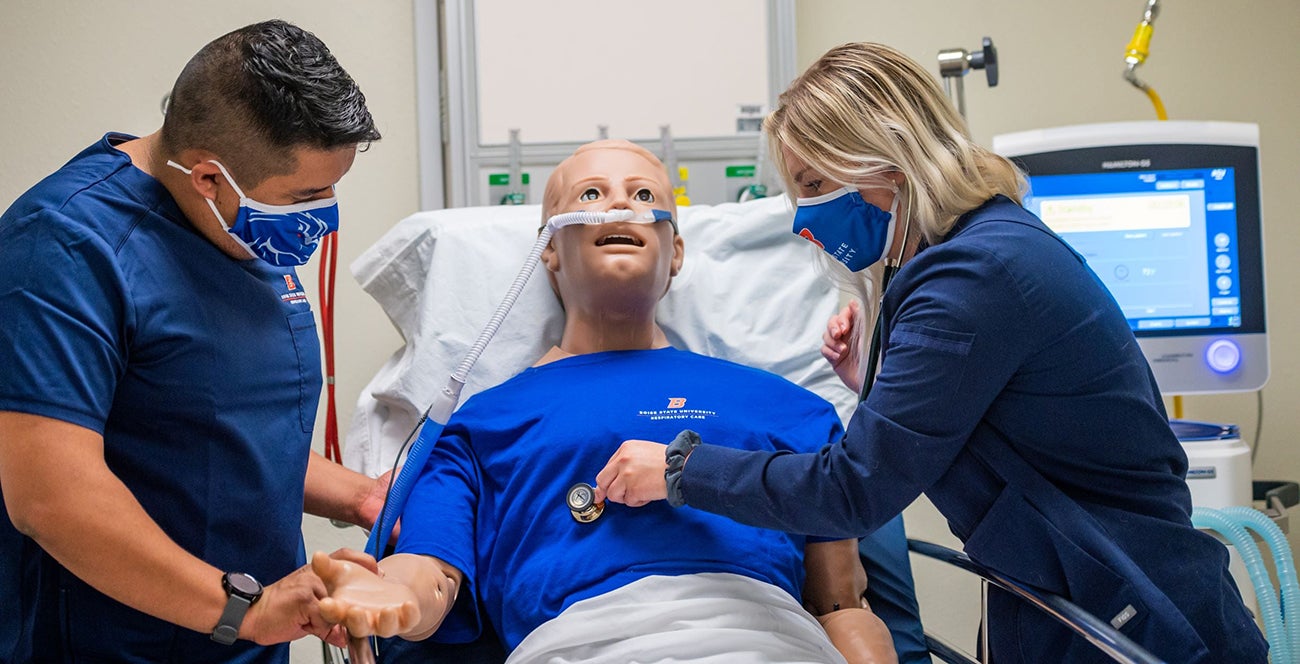
Megan Koster, department chair for the College of Health Sciences’ respiratory care units within the School of Allied Health Sciences and the director of the master’s program in respiratory care, has reason to be proud.
Koster and her team have carved out a national reputation, particularly for the design of online offerings.
For the second time in the three years that the online master’s program has been graduating students, the American Association for Respiratory Care added the Boise State program to their 2023-2024 Apex Award roster. Koster’s is one of 29 respiratory care teams, and one of only 11 educational programs, to make the list.
“This really elevates Boise State University. We were a leader before, but to be recognized along with Ohio State, Rush University, Florida State … really cements it,” Koster said.
Within the education category, Boise State is being recognized for the quality of the program overall, its evidence-based practices, the level of education of instructors and the quality of the skills being brought to the online programming.
This is yet another accolade for respiratory care education at Boise State. It’s been called an online best in the nation by intelligent.com and EduMed.org, both of which match potential students with appropriate higher education in health care. Reasons for the raves? Flexibility, faculty and cost, among others.

Broncos studying respiratory care are now signing on from across the country. The online master’s was designed from the bottom up to provide what respiratory therapists would need: clinical excellence, critical inquiry and leadership skills. Students are involved in research projects applicable to the practice setting, studying patient outcomes, conducting retrospective chart reviews and engaging in a variety of quality improvement projects.
“It’s practical. We’re breaking down barriers and making it real, so they can add to the profession,” Koster said, adding that at leadership levels in health care settings, “They’ve already done all of that work in the program.
Learn more about Boise State’s Department of Respiratory Care